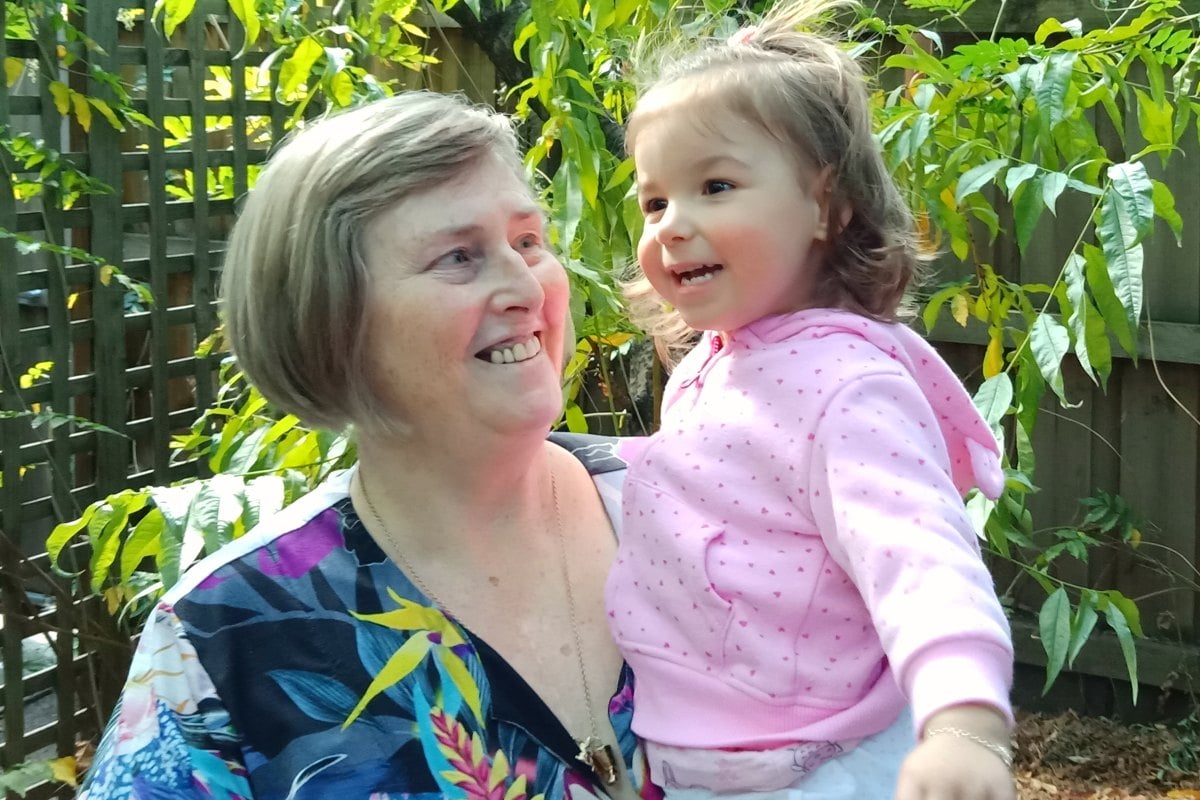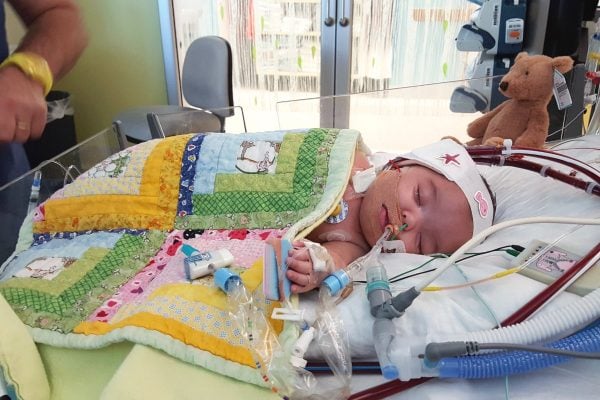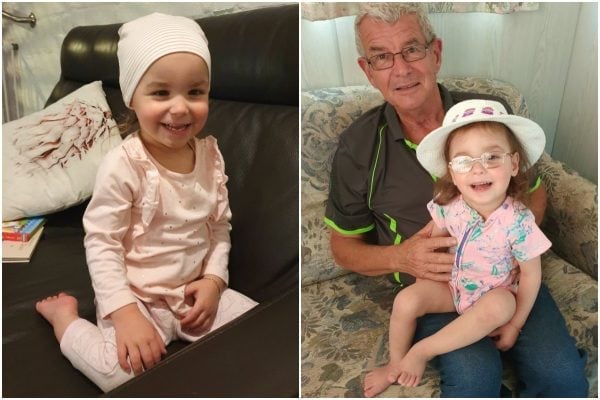
All Dianne Hicks wants for her granddaughter Taylor is to be able to take her home to the country and let her play in the dirt. Taylor is three, and needs a heart transplant. She’s lived most of her life inside the sterile walls of a hospital.
“I put her in a sandpit over at the hospital one day and she just froze,” Hicks tells Mamamia. “She just sat there with her hands in the air. She did not move, did not know what to do.”
Hicks and Taylor are from the country town of Robinvale in Victoria. But while they’re waiting for a suitable donor heart, they have to stay in Melbourne, because they can’t be too far away from a transplant team. And because Taylor weighs just 10kg, it’s hard to find a heart that’s small enough for her.
“If we don’t get a heart, I don’t know,” Hicks says. “Taylor’s very high risk. She can just go down in a matter of hours. There’s no warning, no nothing.”
Hicks, who has been Taylor’s primary carer since she was born, noticed there was something seriously wrong with her when she was two months old.
“She used to scream, this unmerciful screaming. So I took her up to the hospital in Mildura, and they checked her over and they couldn’t find anything wrong. I said, ‘I’m not taking her home, because there is something seriously wrong with her.’ So they grudgingly said they would admit me overnight with her.
“At one o’clock she made these strange noises, so I jumped out of bed and picked her up, and as I picked her up, she arrested in my arms.”



